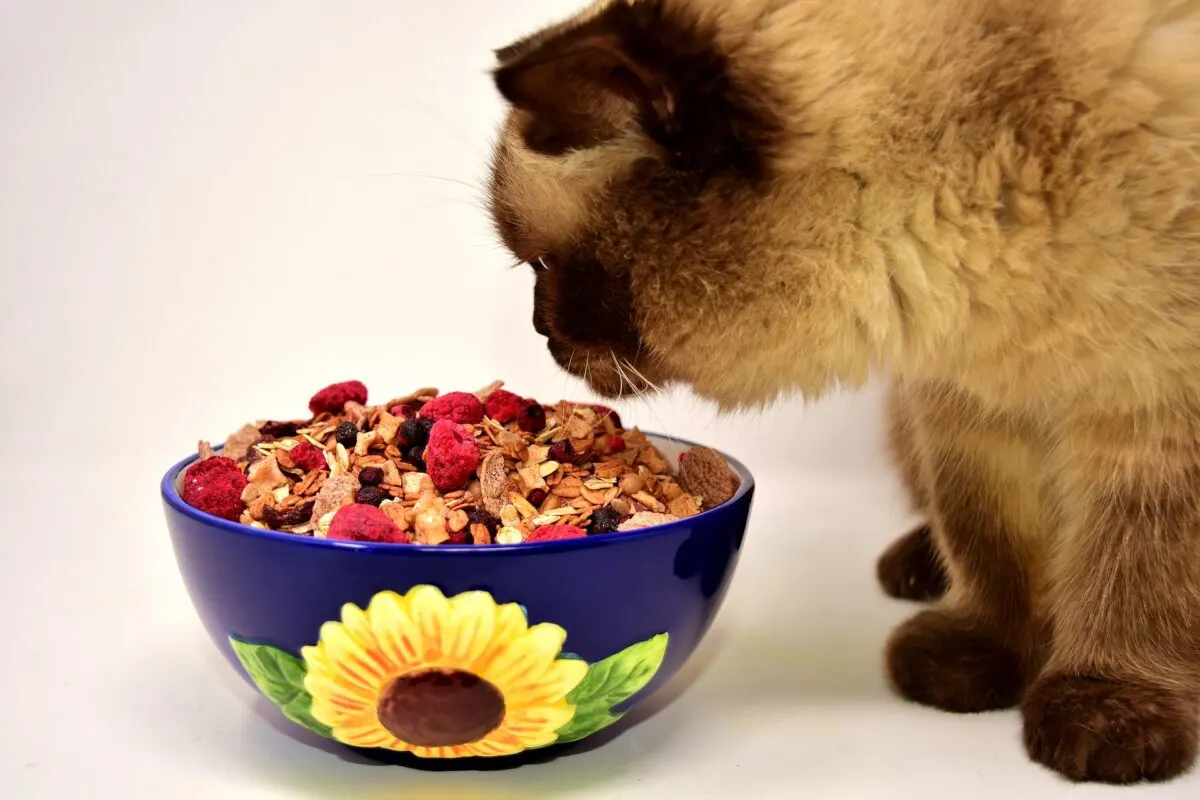Ever wondered if you can let your baby have a taste of your breakfast? Let’s get into it – can cats eat greek yogurt?

As cat owners, we want to give our feline friends the best nutrition to keep them healthy and happy. While cats are known to be picky eaters, certain human foods can harm their health. Greek yogurt is beneficial for humans, but can cats eat greek yogurt?
After all, feeding our pets a healthy diet is essential to their overall well-being. As responsible pet owners, we must know what foods are safe for our feline companions. This guide will thus provide a detailed overview of whether cats (and kittens) can eat Greek yogurt.
Can Cats Eat Greek Yogurt?

Cats should not eat Greek yogurt as its high in carbohydrates, which may lead to weight gain and obesity in cats. While there aren’t extensive displays of tolerance since the immune system of cats is already developed, that doesn’t mean this product doesn’t affect them.
After all, it’s still true that cats are lactose intolerant and therefore are affected by Greek Yogurt.
Can Kittens Eat Greek Yogurt?
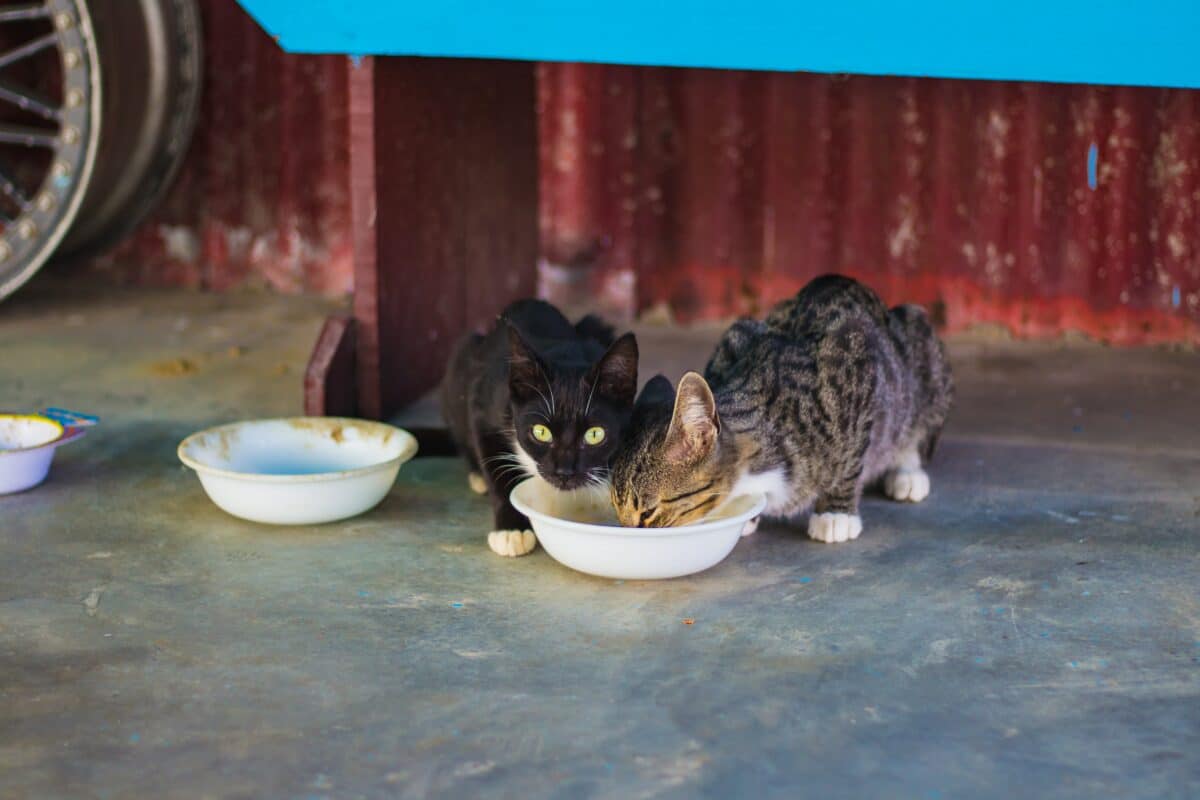
Kittens should not consume Greek yogurt, as they are more sensitive to dairy products than adult cats. Like adult cats, kittens are lactose intolerant, which means they lack the enzyme necessary to digest lactose, the sugar in dairy products.
While adult cats may be able to tolerate small amounts of Greek yogurt, kittens are more likely to experience gastrointestinal upset if fed dairy products. It’s essential to consult a veterinarian before introducing new food into a kitten’s diet.
On the other hand, another question arises from this is far more generic – can any pet engage in this action? That’s why we recommend learning more about pets eating yogurt before making any decisions.
But, back to cats!
Nutritional Information and Benefits for Cats and Kittens
While Greek yogurt is a good source of protein and calcium for humans, it is unsuitable for cats and kittens.
It is also because cats are born meat eaters and carnivores, wherein their nutrition demands protein rather than carbs, of which greek yogurt provides more of the latter since it is high in carbohydrates and contains lactose, which many cats and kittens are intolerant to.
The Potential Risks
There are also potential risks associated with feeding Greek yogurt to cats and kittens. One of the main concerns is that many cats and kittens are lactose intolerant, which means they have difficulty digesting dairy products. Consequently, it may lead to stomach and gut issues like diarrhea and vomiting.
Furthermore, Greek yogurt can be high in fat, making cats obese when overeating. The extra lactose will hurt your cat the most in excess consumption.
Secondly, some Greek yogurt brands contain added sugars or artificial sweeteners, which can also be problematic for your pet.
It’s essential to consult a veterinarian before introducing Greek yogurt or any new food into a cat or kitten’s diet. The veterinarian can guide the appropriate amount and frequency of feeding and identify any potential health concerns or risks.
The Significance of the Correct Diet for Cats
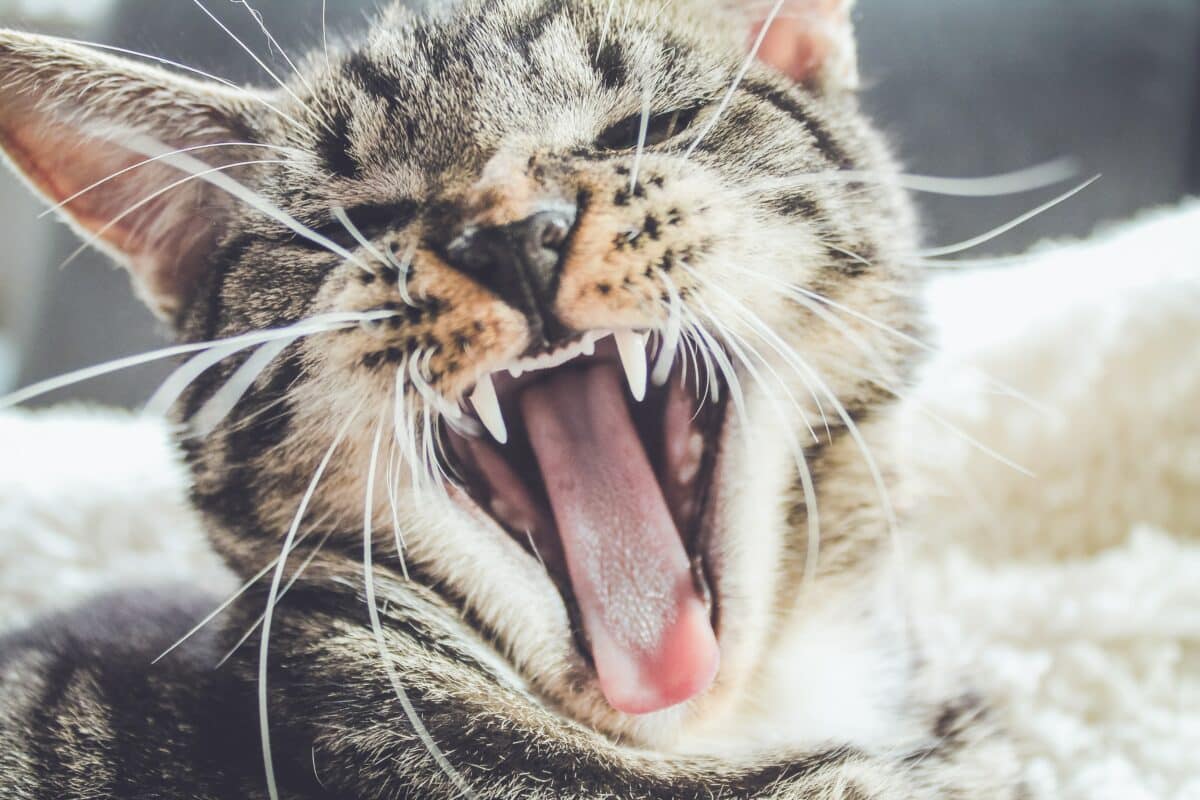
A proper diet is essential for maintaining the health and well-being of cats and kittens. The recommended dietary regimen for cats and kittens includes a balanced and complete diet that provides the necessary nutrients to grow, develop, and maintain bodily functions.
A nutritionally adequate diet for cats and kittens should consist of high-quality protein sources, such as meat or fish, and essential vitamins and minerals. It’s vital to ensure that the diet provides the necessary amounts of taurine, an essential amino acid for heart and eye health.
While Greek yogurt can provide some nutritional benefits for cats and kittens, it should not be the sole source of nutrition. Greek yogurt can be an occasional treat, but it should not be a regular part of a cat’s diet.
Alternatives to Greek Yogurt for Cats and Kittens
While Greek yogurt may not be a safe food option for cats and kittens, some alternatives are safe and beneficial for their health. Some of the best yogurt alternatives for cats and kittens include:
- Meat-Based Treats: Cats and kittens can obtain the nutrients found in Greek yogurt from meat-based treats. Look for high-quality, protein-rich treats that are suited for cats.
- Cat-Specific Probiotics: If you want to support your cat’s digestive health, cat-specific probiotics may be a better alternative than Greek yogurt. These supplements improve gastrointestinal health for animals.
- Cottage cheese: Cottage cheese is another safe option for cats and kittens. It is high in protein, low in lactose, and provides essential nutrients like calcium and phosphorus.
- Kefir: This alternative is a fermented milk product similar to yogurt. It is high in probiotics, low in lactose, and provides beneficial nutrients like calcium and vitamin D.
The Pros of Greek Yogurt For Cats
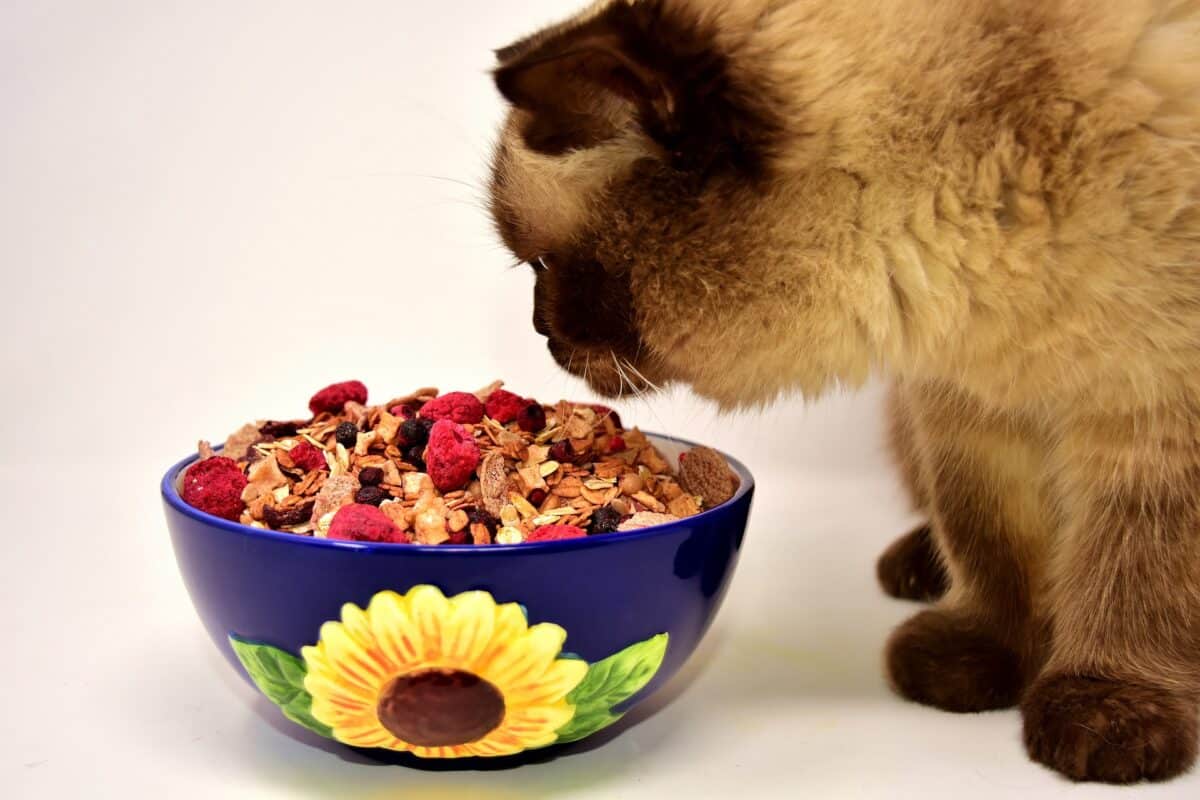
So we know all about the bad points of Greek Yogurt for cats, but let’s not forget that there can also be specific pros. Because while Greek yogurt should not be the primary source of nutrition for cats, it can offer some potential benefits in moderation. Here are some possible pros of feeding Greek yogurt to cats:
- Protein source: Alongside its carbs, Greek yogurt can also be a good protein source, essential for carnivorous cats. The high protein content in Greek yogurt can support muscle growth and maintenance.
- Probiotics: Greek yogurt contains beneficial probiotics, which can support digestive health and help to maintain a healthy gut microbiome in cats.
- Calcium: Greek yogurt contains calcium essential for cat bone health.
- Low in lactose: While cats are lactose intolerant, Greek yogurt has less lactose than regular yogurt, making it a potentially more tolerable treat for some cats.
It’s important to note that these potential benefits are outweighed by the risks of feeding Greek yogurt to cats, especially if done excessively or without consultation with a veterinarian.
How to Feed Yogurt to Cats (and Kittens)
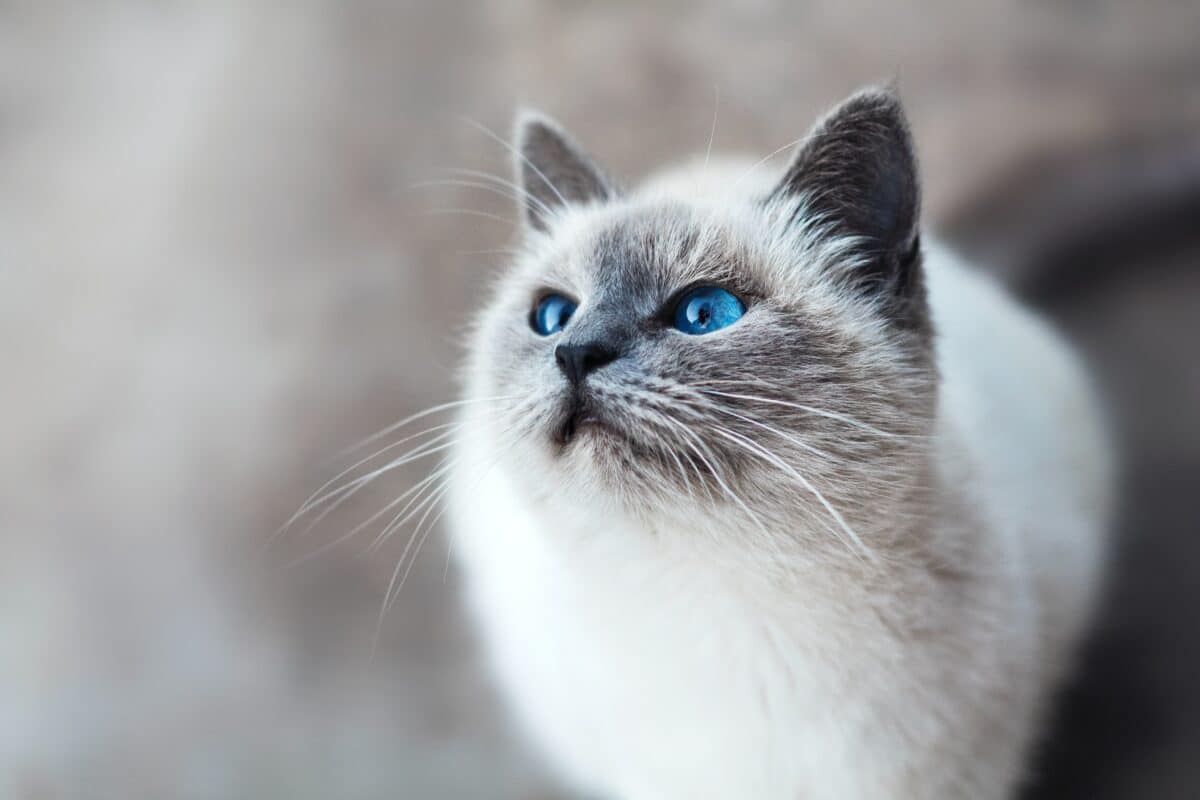
If you end up giving yogurt to your cat or kitten after all this information, it’s essential to do so in moderation and follow these steps:
- Introduce yogurt gradually: Start by feeding a small amount of yogurt with your cat’s regular food.
- Watch for digestive issues: Monitor your cat’s response to the yogurt, and if there are any signs of digestive problems, stop feeding it immediately.
- Choose plain yogurt: If you provide yogurt, choose plain yogurt without additives or flavorings.
- Consider cat-specific probiotics: As mentioned earlier, cat-specific probiotics may be a better alternative to support your cat’s digestive health.
Other Extra Information
It’s important to note that feeding cats and kittens human food, in general, can harm their health. Many human foods contain toxic ingredients for cats, and providing them can lead to severe health problems. Always consult your veterinarian before introducing new food into your cat’s diet.
Conclusion
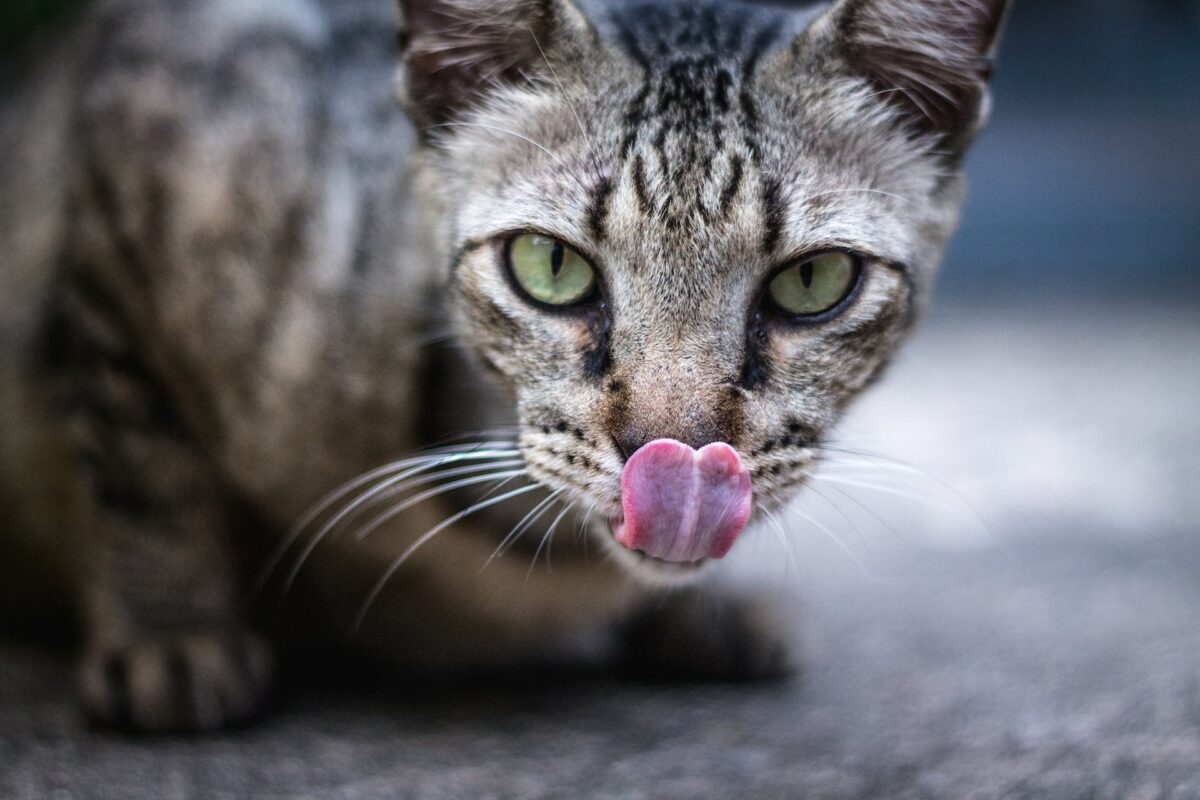
In conclusion, cats and kittens should not be fed Greek yogurt due to its potential health risks. While yogurt can provide some health benefits for cats and kittens, safer alternatives, such as cottage cheese and kefir, are available.
More importantly, even if you do feed them greek yogurt, it is important to introduce it slowly and in moderation. Continuously monitor their reaction closely and never use yogurt as a substitute for their regular food. Following these guidelines will allow you to safely offer your cat or kitten a nutritious treat without risking their health.
Thank you for reading this article! As a proud cat owner, you will probably enjoy our post Can Cats Eat Boiled Eggs?
Join our Forum for free today!

- 93-Million-Year-Old Crocodile Fossil Discovered With Baby Dinosaur in Its Stomach - July 23, 2024
- Woman Captured Howling with Gigantic White Wolf in Beautiful Footage - July 23, 2024
- Recent Study Reveals Hippos Can Momentarily Fly - July 23, 2024

